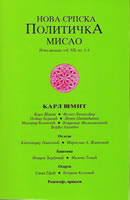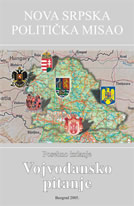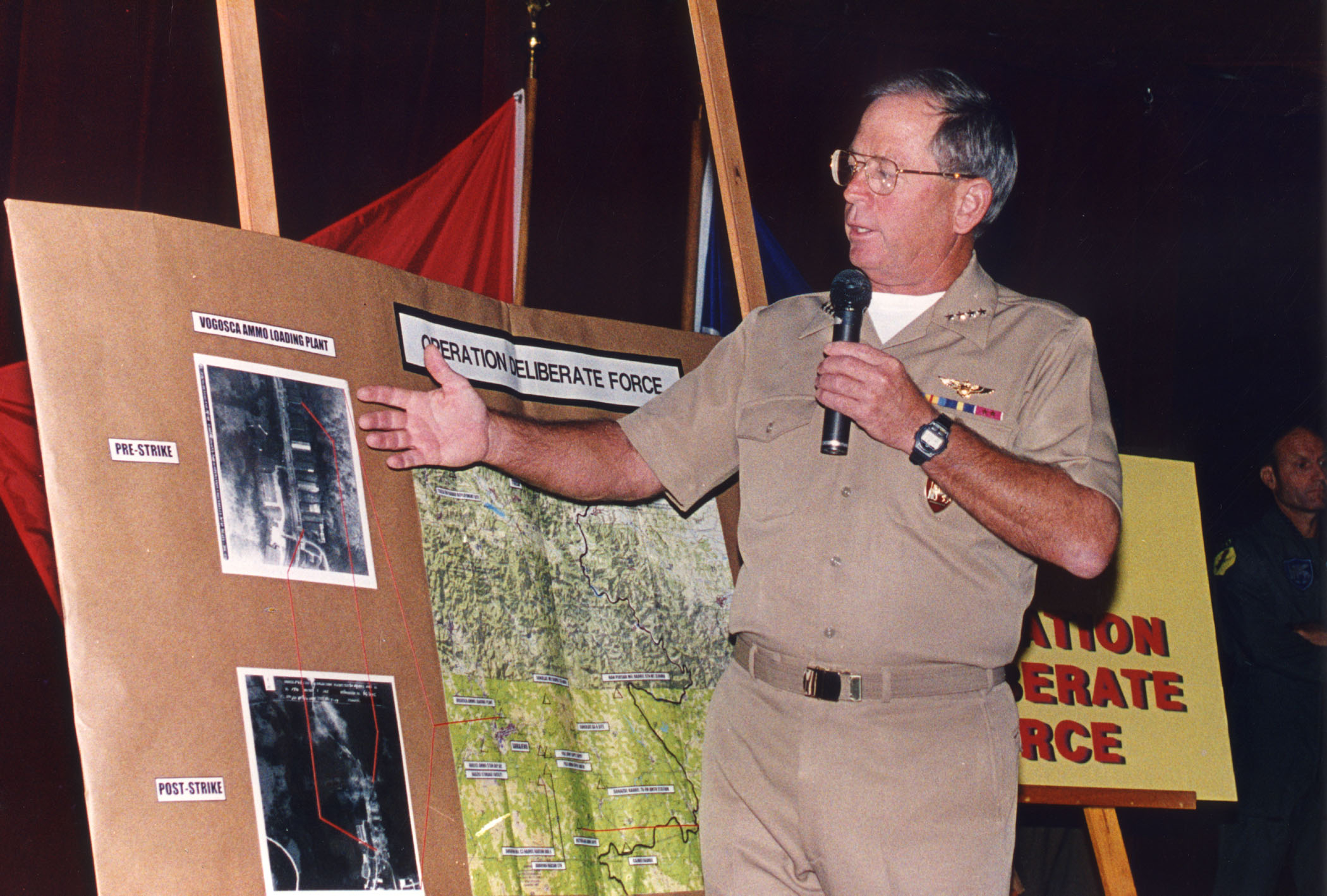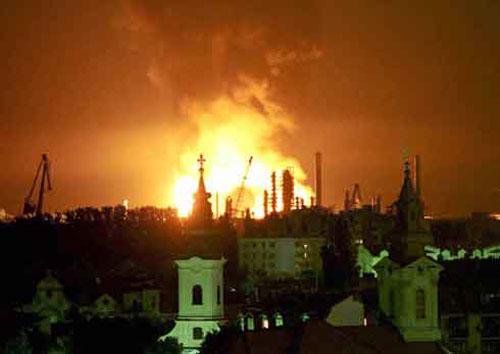| NSPM in English | |||
The Balkans XX years after NATO aggression: the case of the Republic of Srpska – past, present and future |
 |
 |
 |
| уторак, 16. април 2019. | |
|
Your Excellencies, Members of the European Parliament,
Honored guests – and respected hosts, It seems that it is only now – as we are stepping well into the 21 century and possibly into a new and different world, a new epoch in which sovereignty is gaining more and more support of the people against globalizing trends of previous decades – that the NATO bombing of the Republic of Srpska which happened over two decades ago is beginning to be objectively discussed and analyzed (let us say - comprehensive studies about the issue are still yet to come). Republic of Srpska was founded on January 9 1992 – therefore, two months prior to the beginning of the civil and religious war in Bosnia – and it has been created precisely as a response to the violation of the Constitution of Bosnia and Herzegovina of that time i.e., in order to protect the rights of the Serbs as a people. Civil and religious war in Bosnia began in April 1992. It must be noted that from the very beginning there have been multiple attempts to end the war but the West interfered – simultaneously calling itself “the international community” – and this is how NATO become involved supporting exclusively one side in the conflict.
Considering the basic facts about NATO aggression against the Republic of Srpska one should keep in mind the following: first of all, this was the largest and the most military organized operation in Europe since the end of the Second World War. In the operation called „Deliberate Force“ – which lasted from August 30 until September 14 1995 – the biggest military force in the world attacked the Republic of Srpska – area of 24, 526 sq km with the population of 1, 479 million. The total number of bombs dropped on Srpska was 1026. NATO targeted almost everything - cities, villages, schools, hospitals, industrial facilities, power facilities. The aggression led to the immediate loss of 152 civilian lives, including children, 46 military victims, and over 300 seriously wounded civilians ( the numbers are most likely higher since the complete and systematized data from the period does not exist). The material damage is measured in multi-million euros and it would take years even for a much larger and economically prosperous country to restore it. Moreover, in a highly relevant aspect, however, the other reason why the number of actual victims is yet to be counted is because – in violation to the Geneva Convention and a number of other conventions - bombings have been preformed using the ammunition with depleted uranium which caused permanent significant increase in number of malignancies (in two decades the death rate from these diseases tripled, it is now over 3000 per year) and the consequences will be felt by future generations as well. NATO, therefore, used unauthorized weapons and ammunition which was used never before – such as missile warheads with depleted uranium.
Serbs have never in their history attacked or otherwise imperiled any NATO member country - nor did the Republic of Srpska present any threat to world peace and safety as it has been presented by Western media and self-proclaimed experts at the time i.e. in decades of satanization of Serbs as a people.The real explanation is that after the fall of the Berlin Wall and the end of the Warsaw pact NATO set its new goal i.e., to spread to the East. This is how NATO transformed itself into a political expansionist organization. Unfortunately, the change of the concept of NATO has been first felt by the Serbs in the Republic of Srpska. This transformation of the alliance equally corresponded to a common thought of that time, namely, that NATO needed to find new tasks in order to justify its existence. NATO alliance, therefore, positioned itself as a party involved in the armed conflict - which is contrary to the international conventions as well as to certain rules of NATO alliance that existed at that time. The breakdown of Yugoslavia in the eyes of the allience has been a practically perfect experiment: it served as an introduction for a new concept of “local wars” which was then applied afterwards. The NATO aggression was not caused by a single event – it has been planned much earlier (the force, power as well as the number of participants i.e., 5000 soldiers, 400 aircrafts etc. support the thesis that the whole operation has been planned in advance – more details you may find in the first book I am presenting here today NATO’s Deliberate Force Against The Republic of Srpska), and – as we have seen in many different cases from Iraq to Libya and Syria, reasons to start the agression are basically extremely bizarre and serve the purpose of justifying the aggression before the world public. Apparently, the main reason of - first of all the American administration involvement in the war in Bosnia and Herzegovina – has been to ensure the US domination in the Balkans. Therefore, as a political organization, NATO continued to pursue its activities on the territory of ex-Yugoslavia and the Balkans. Until present, NATO has placed a great deal of the Balkan Peninsula under its control: by fast-track acceptance of new countries (even when it is highly questionable from a democratic standpoint that the people in those countries actually wanted to join the alliance), as well as through various kinds of agreements. Needless to say - all of this is not helping long-term stability in the region precisely because it appears as a continuation of NATO’s political expansionism. Republic of Srpska and Serbia are the only political subjects resisting further expansion of the alliance.
The pressure on the Republic of Srpska is a continuation of the attitude NATO adopted during the years of war. In the contemporary situation, we are faced with the issue weather the Republic of Srpska should become a member of such an alliance, i.e. of a military organization which has undoubtedly written its history in a profoundly negative manner. Memory of this exists today and the crime of NATO aggression will be remembered as such by future generations as well. The people of Srpska remember that they were unlawfully attacked and they also recall the largely excessive use of force by the alliance. The response, therefore, to the question whether the Republic of Srpska will join NATO has already been given - by the people of the Republic of Srpska. The official position of the Republic of Srpska is and will be one of military neutrality i.e. of not joining any military organization neither in present nor in the future. In October 2017 the National Assembly of the Republic of Srpska adopted a Resolution proclaiming its military neutrality in relation to military alliances which firmly states its position. Republic of Srpska follows the equally military neutral position of Serbia which is one of the guarantors of the Dayton Agreement. NATO’s Deliberate Force operation,in fact, was not the only action of the alliance against Srpska i.e. neither the first nor the last one (there were a number of smaller operations of the alliance that preceded the bombing). After the bombing - and now for over two decades - NATO has consistently been engaged in promoting and strengthening the role of the High Representative in Bosnia and Herzegovina, while the High Representative has coherently and systematically been engaged in dissolving the Dayton Peace Accords. Or, more precisely, 460 laws, rules and regulations were imposed by the High Representative – imposed meaning they are contrary to the Dayton Agreement. Therefore, through numerous direct violations of the Dayton Agreement the High Representative has been weakening the political and legal status of the Republic of Srpska. (More details may be found in the other book I am presenting here Subversion of the Dayton Agreement – and one should keep in mind here, first and foremost, that the Constitution of Bosnia and Herzegovina is Annex 4 of the Dayton Accords i.e., that, therefore, all subversion of Dayton have far-reaching consequences). This way, NATO once again proved itself as a political organization par excellence, and one that pursues a continuing task of deconstructing Srpska - so the fact that there is no trust in the alliance appears as the only reasonable attitude. ( And even if one was to observe this matter from a purely cost-benefit pragmatistic point of view, it is clear there would not be any benefits for Srpska from NATO membership – on contrary, only the expenses would be much higher such that, for instance, the defense budget would, would need to increase 100%).
Another – and a most recent example – of just to what extent NATO is still explicitly interfering into political life in Bosnia (and once more against the Republic of Srpska) is this: after Bosnia’s recent elections six months ago NATO offered Bosnia and Herzegovina to activate Membership Action Plan (MAP). Furthermore, the events that immediately followed retroactively proved the timing here was also not a matter of coincidence because right after this offer Bosniak representatives declared that they will not elect the Chairman of the Council of Ministers until the NATO MAP offer is accepted. (Bosnia does not have a government – it has a body called Council of Ministers composed of representatives both from the Republic of Srpska and from the Federation). This way NATO MAP plan placed itself as the direct condition for what is suppose to be normal practical implementation of the results of democratic elections – and this is called extreme political interventionism. The Chairman of the Presidency of Bosnia (the Presidency of Bosnia functions according to the rotating principle – so the current Chairman is from the Republic of Srpska) has declared that NATO’s accession process is blocking Bosnia’s EU path and has traveled to Brussels twice regarding this matter. In spite the fact that EU officials confirmed on several occasions that the process of the EU integration and NATO membership are two separate issues – and that therefore the EU path is not conditioned by questions such as Membership Action Plan - it remains a fact that the Council of Ministers in Bosnia has not been formed up to this day. This example illustrates several things: 1) firstly, the strong division between the stance of the Republic of Srpska and the Federation regarding NATO; 2) secondly, NATO’s contemporary political involvement in Bosnia – as a part of its broader plan to control the Balkans 3) thirdly, that is it unclear to what extent EU and NATO paths are in reality separated – and this is happening in a moment in which there is a “loss of enthusiasm” in the Balkans for the EU en generale and 4) finally, that, in practice, it is the Federation – and not the Republic of Srpska – that is the cause not only of Bosnia’s current political standoff but equally of its continual process of progressive dissolving i.e. of turning out to be “an impossible state”. The same can be seen in and through the history of violation of the Dayton Peace Accords by the High Representative or, more precisely, between the correlation of such violations and the consistent political actions of the Bosniaks in the Federation to centralize Bosnia and, therefore, negate its political and legal structure of a state composed of two entities and three people. (And this negation of Bosnia’s structure by the Bosniaks can nowadays be seen in attempts of majorization of Croats as well as Serbs).
Republic of Srpska is the only self-sustainable one in Bosnia, both in political and economic terms – and the same does not hold for either the Federation or Bosnia as a whole. Republic of Srpska is stable, institutionally consolidated and is on the path of growth and development. Its policy is cooperation with all political actors worldwide which respect its internationally recognized political and legal status according to the Dayton Agreement. Its policy is equally one of military neutrality - above and beyond all - because there are all reasons to believe that NATO membership would mean the political end of the Republic of Srpska. (Along the same lines the Republic of Srpska will purse the EU path inasmuch as this path not conditioned by acceleration into the alliance and inasmuch as there is respect for the status of Srpska. Also, the Republic of Srpska is keeping its eyes wide open when it comes to the issue of all turbulences happening in contemporary Europe and is proactively observing its undergoing transformations – because it is prepared and willing to further strengthen relations with all its political allies ). Moreover, the stance of the Republic of Srpska is that military neutrality relevantly contributes to the stability of the entire Balkan region precisely because it affirms sovereignty and autonomy and simultaneously corresponds to the democratic principle i.e. to the will of the people. Consequently, therefore, the concept of a larger militarily neutral territory in the Balkans is one which would potentially lead to reduction of international tensions and, furthermore, as such, it could become a strategic course in future European doctrines, that is - it could possibly be incorporated into a new continental security architecture. Considering the current problems of the Balkans and its open questions – as well as issues of European security overall – it seems that the emphases on seeking common „non-aligned solutions“ theoretically and practically could be the best fit. Indisputably, these issues equally relate to the question of Europe’s future and to the way one thinks about its politics and security. The vision of Europe’s future which the Republic of Srpska perceives as the one that best serves the long term interests of different European people is one that affirms sovereignty, patriotism and neutrality – a Europe of its people that is truly democratic. The 21 century requires of all of us to creatively engage in the process of rebuilding politics, economy, society and culture in the epoch after globalism and neoliberalism – as well as to emphasize the potentials of Europe when we remember that Europe, in fact, stretches from “the Atlantic to the Urals”. It is in such a way we can begin to see the Europe of tomorrow. Thank you for your attention. (Говор је одржан 26. марта 2019. у Европском парламенту у Стразбуру. Аутор је члан Сената Републике Српске) |
Остали чланци у рубрици
- Playing With Fire in Ukraine
- Kosovo as a res extra commercium and the alchemy of colonization
- Из архиве - Remarks Before the Foreign Affairs Committee of the European Parliament
- Dysfunction in the Balkans - Can the Post-Yugoslav Settlement Survive?
- Serbia’s latest would-be savior is a modernizer, a strongman - or both
- Why the Ukraine Crisis Is the West’s Fault
- The Ghosts of World War I Circle over Ukraine
- Nato's action plan in Ukraine is right out of Dr Strangelove
- Why Yanukovych Said No to Europe
- Bosnia and Syria: Intervention Then and Now

.jpg)























